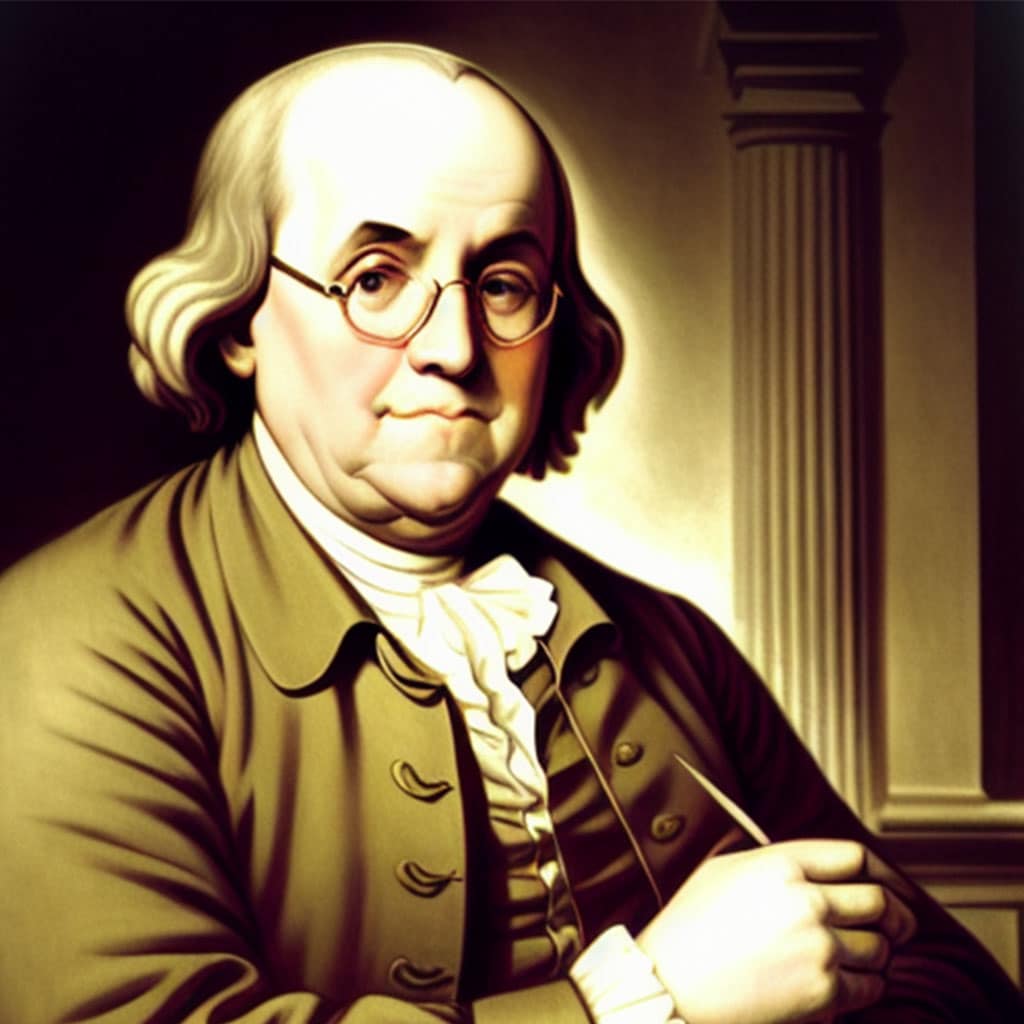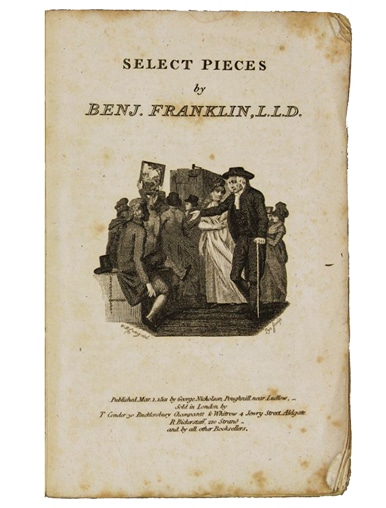REMNANT TRUST COLLECTION
Benjamin Franklin

“Let not princes disdain to admit into their councils those who are most capable of giving them good advice… It is by this means only that we are likely to see what virtue, science and authority can do, when animated by the noblest emulation, and working unanimously for the happiness of mankind. But so long as power is on one side, and knowledge and understanding alone on the other, the learned will seldom make great objects their study, princes will still more rarely do great actions, and the peoples will continue to be, as they are, mean, corrupt and miserable.”
– Franklin
b. 1706 CE – d. 1790 CE
Benjamin Franklin was born January 17th, 1706 in Boston, Massachusetts. Franklin held many positions throughout his life including postmaster, clerk of the General Assembly, and organized the first police force and fire company in the colonies. He taught himself French, Italian, Spanish, and Latin and could read these languages with some ease.
In 1749, he and twenty-three other citizens of Philadelphia opened an academy that eventually became the University of Pennsylvania. He led in the organization of a militia force, and in the paving of the city streets, improved the method of street lighting, and assisted in the founding of a city hospital. Franklin gave to nearly every measure or project for the city of Philadelphia.
He was the first American economist, and his writings on economics argued that an abundance of currency would make interest rates low. Benjamin Franklin’s contributions to varied aspects of history rank him as one of the influential members of American history.


